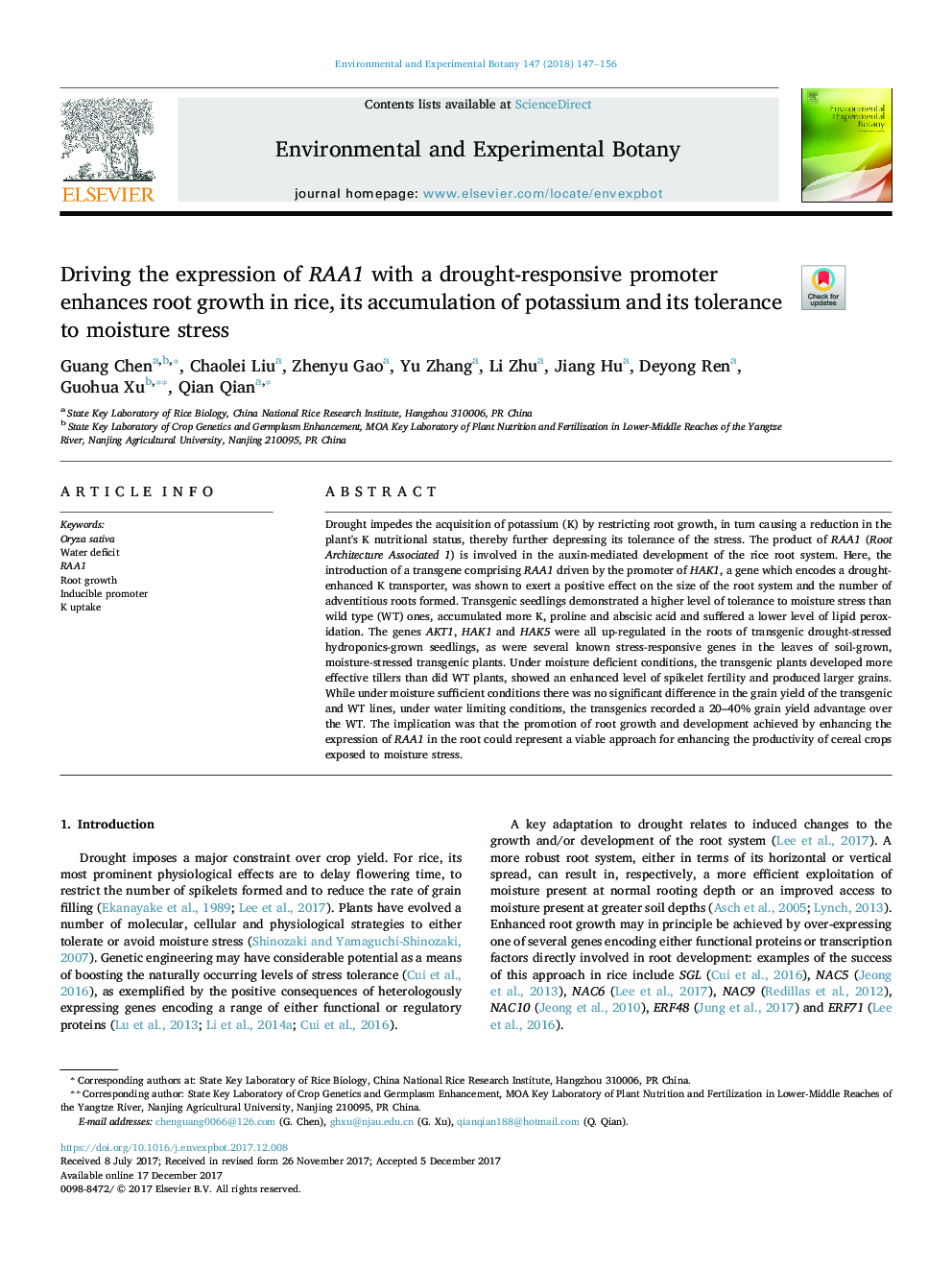| Article ID | Journal | Published Year | Pages | File Type |
|---|---|---|---|---|
| 8887104 | Environmental and Experimental Botany | 2018 | 10 Pages |
Abstract
Drought impedes the acquisition of potassium (K) by restricting root growth, in turn causing a reduction in the plant's K nutritional status, thereby further depressing its tolerance of the stress. The product of RAA1 (Root Architecture Associated 1) is involved in the auxin-mediated development of the rice root system. Here, the introduction of a transgene comprising RAA1 driven by the promoter of HAK1, a gene which encodes a drought-enhanced K transporter, was shown to exert a positive effect on the size of the root system and the number of adventitious roots formed. Transgenic seedlings demonstrated a higher level of tolerance to moisture stress than wild type (WT) ones, accumulated more K, proline and abscisic acid and suffered a lower level of lipid peroxidation. The genes AKT1, HAK1 and HAK5 were all up-regulated in the roots of transgenic drought-stressed hydroponics-grown seedlings, as were several known stress-responsive genes in the leaves of soil-grown, moisture-stressed transgenic plants. Under moisture deficient conditions, the transgenic plants developed more effective tillers than did WT plants, showed an enhanced level of spikelet fertility and produced larger grains. While under moisture sufficient conditions there was no significant difference in the grain yield of the transgenic and WT lines, under water limiting conditions, the transgenics recorded a 20-40% grain yield advantage over the WT. The implication was that the promotion of root growth and development achieved by enhancing the expression of RAA1 in the root could represent a viable approach for enhancing the productivity of cereal crops exposed to moisture stress.
Related Topics
Life Sciences
Agricultural and Biological Sciences
Ecology, Evolution, Behavior and Systematics
Authors
Guang Chen, Chaolei Liu, Zhenyu Gao, Yu Zhang, Li Zhu, Jiang Hu, Deyong Ren, Guohua Xu, Qian Qian,
